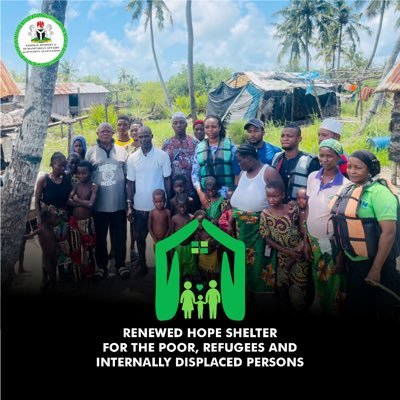The National Programme Manager for Renewed Hope Shelter for the Poor, IDP, and Refugees, Mrs. Chidimma Makuachukwu, revealed that the Federal Government’s Renewed Hope Shelter Programme aims to provide one million low-cost housing units for vulnerable populations within seven years.
This announcement was made at the Sixth Nigeria Affordable Housing Finance and Innovation Summit (NAHFIS Expo 2023) in Abuja.
Read also: SA student housing startup DigsConnect secures funding from Intab
Collaborative Efforts to Secure Land for Construction
Makuachukwu outlined the government’s approach, stating that the ministry would collaborate with state governments and local authorities to acquire land for constructing these low-cost housing units. The initial phase of the project has already begun, with 10 hectares of land allocated to the Federal Government by Benue state. The broader plan is to expand the project to all states in Nigeria by 2024, emphasising the goal of providing affordable housing for vulnerable groups, particularly Internally Displaced Persons (IDPs), facilitating their return to ancestral homes.
Mrs. Makuachukwu, “We are working with the state government in conjunction with the local authorities to get land, currently we are in Benue…the agenda is to get the land, bring the government to the front.”
Inclusive Approach and International Collaboration
Makuachukwu stressed the inclusivity of the project, highlighting that there is no selection process based on region; instead, the focus is on vulnerable states across the Federation. Philanthropists, international donors, and embassies are encouraged to partner with the project. The project, aimed at building one million low-cost housing units in seven years, will involve local labour and content, empowering the economic growth of local authorities.
Mrs. Makuachukwu said, “the idea is to move for a need assessment, check what is happening so that we come back with need intervention and address the need.”
Need for Collaboration between States and Federal Government
Amb. Boladei Igali, Chairman of the occasion and Pro-Chancellor, Federal University of Technology Akure, emphasised the necessity for collaboration between states and the Federal government to achieve the desired results. Drawing examples from the United Kingdom and South Africa, he highlighted the importance of utilising Federal Government subventions for building municipal housing or council flats for low-income earners at affordable prices. Igali stressed the need for subnational entities to play a significant role in the success of the project and urged a focus on low-cost housing in rural areas.
Amb. Igali, “to get this project done, I think we have to work more closely with the states and with sub-national entities… Subnational entities have a great role to play on this project.”
The Renewed Hope Shelter Programme signals a transformative initiative to address housing challenges for vulnerable populations, with technology likely playing a key role in the planning and execution of this ambitious housing project.




